
Radiation followed by mastectomy and immediate breast reconstruction “holds tremendous promise,” as one researcher explained.

A nationally-published, award-winning journalist, Alex Biese joined the CURE team as an assistant managing editor in April 2023. Prior to that, Alex's work was published in outlets including the Chicago Sun-Times, MTV.com, USA TODAY and the Press of Atlantic City. Alex is a member of NLGJA: The Association of LGBTQ+ Journalists, and also performs at the Jersey Shore with the acoustic jam band Somewhat Relative.

Radiation followed by mastectomy and immediate breast reconstruction “holds tremendous promise,” as one researcher explained.
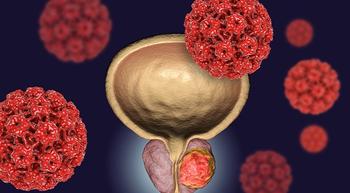
An expert explains the necessity of managing patients’ testosterone levels while treating prostate cancer.

There is no difference in recovery, complication or cost between the two most common surgical approaches for esophageal cancer.

An expert explained the importance of patient choice in treatment decisions for high-risk, resectable melanoma, based on their own treatment goals.

Some patients with limited-stage small cell lung cancer experienced overall survival benefits and progression-free survival via treatment with Imfinzi.

CAN-2409 has been associated with improved survival among patients with non-metastatic, borderline resectable pancreatic ductal adenocarcinoma.

A clinical trial has started to evaluate the investigational drug MK-1084 and Keytruda among some patients with metastatic non-small cell lung cancer.

Research has found simple hysterectomy to not be inferior to radical hysterectomy among patients with low-risk cervical cancer.

The Food and Drug Administration approved Abecma for adults with relapsed or refractory multiple myeloma who have received two or more previous lines of therapy.
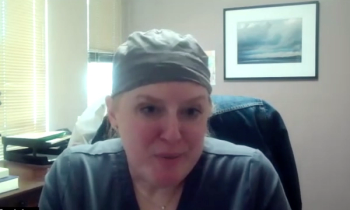
An expert explains how gene-expression profile testing can inform treatment decisions for patients with squamous cell carcinoma.
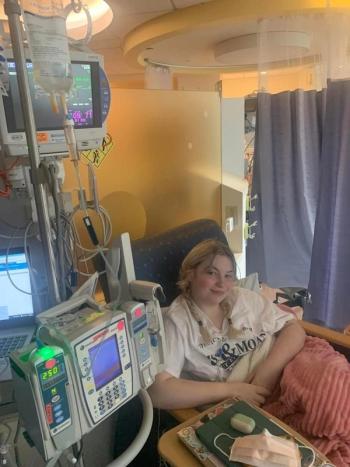
Camille Wahl has had osteosarcoma since she was 10, and she found a tireless advocate in her mother.
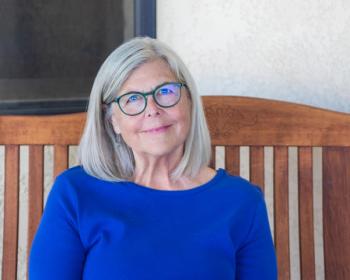
There is no difference in treatment for non-secretory multiple myeloma and multiple myeloma, an expert told CURE®.
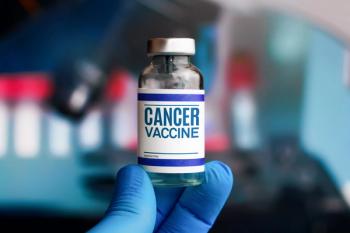
A vaccine developer discusses a cancer vaccine that has been shown to potentially boost long-term overall postsurgical survival.

Recent research has shown encouraging results for older patients with classical Hodgkin lymphoma treated with Adcetris plus chemotherapy or Opdivo.

An expert explains what patients need to keep in mind and what conversations they should be having with their care teams.

Besponsa provides another — and potentially more effective — option outside of traditional chemotherapy for pediatric patients with relapsed or refractory B-ALL.

Experts from City of Hope explain the importance of symptom management and care planning during cancer.

Across disease stages, Black patients with renal cell carcinoma experience worse survival outcomes than White patients, research has shown.

Dendritic cell maturation agent plinabulin, immunotherapy and chemotherapy are being studied in first-line extensive-stage small cell lung cancer.

Patients with inoperable kidney cancer saw significant results in local control and cancer-specific survival with stereotactic ablative body radiotherapy.

The investigational drug LSTA1 is being explored for the treatment of osteosarcoma, which starts in the bones and accounts for 2% of childhood cancers.

Subcutaneous administration of Opdivo, could increase efficiency and reduce wait times for patients, as one expert explains to CURE®.

As part of its Speaking Out video series, CURE® spoke with Lillian Dugan of the Dear Jack Foundation about the needs of caregivers for adolescent and young adult patients with cancer.

As part of its Speaking Out video series, CURE® spoke with Lillian Dugan of the Dear Jack Foundation about the issues faced by adolescent and young adult patients with cancer as they age into adult care.

As part of its Speaking Out video series, CURE® spoke with Lillian Dugan of the Dear Jack Foundation about how a cancer diagnosis ‘adds a new identity’ for adolescent and young adult patients.

As part of its Speaking Out video series, CURE® spoke with Lillian Dugan of the Dear Jack Foundation about the power of mindfulness practices such as yoga and meditation.

As part of its Speaking Out video series, CURE® spoke with Lillian Dugan of the Dear Jack Foundation about the current landscape of research for adolescent and young adult patients with cancer.

One expert explains how caregivers are a vital part of the care team during a clinical trial.

Researchers have determined distinguishing characteristics of TFE3-rearranged renal cell carcinoma.

The Food and Drug Administration granted an accelerated approval to Iclusig, described as the new “standard of care” for adults with newly diagnosed Philadelphia chromosome-positive acute lymphoblastic leukemia.